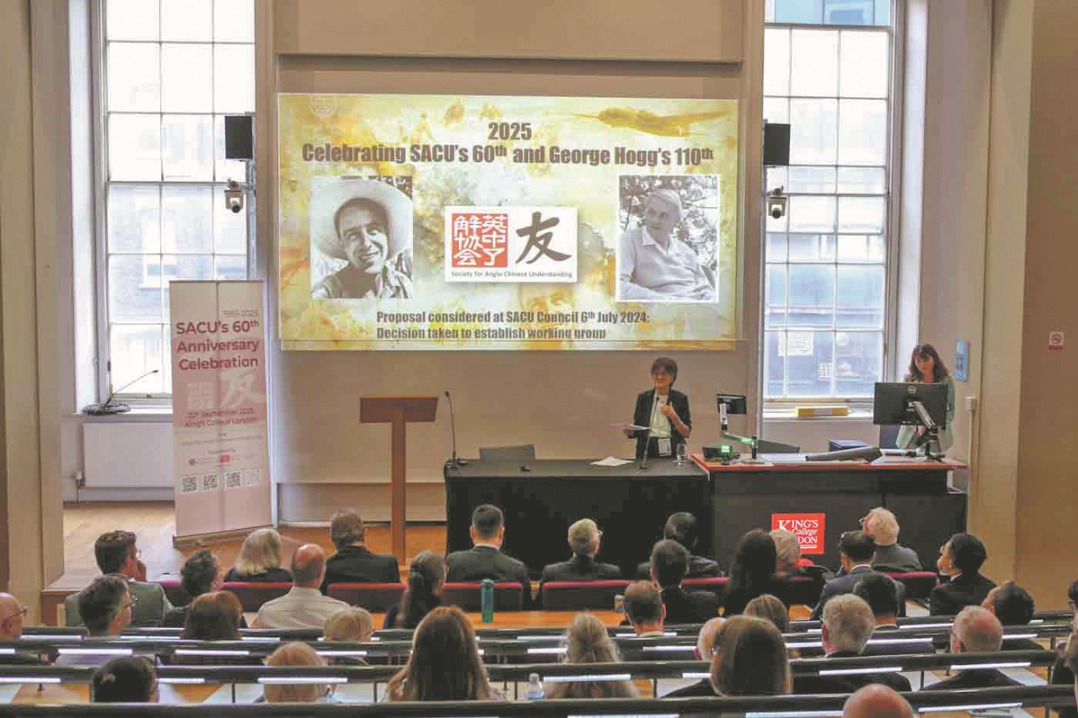Mutual respect the right approach to relations: China Daily editorial

German Foreign Minister Johann Wadephul's decision to postpone his visit to China has provoked mixed reactions.
While German officials and media outlets emphasize that Berlin remains committed to dialogue with Beijing, the postponement has sparked discussions about the future trajectory of Sino-German relations.
Stressing Germany's "very long-standing, good relationship with the People's Republic of China" and the government's desire to maintain open channels of communication, Wadephul was quick to publicly state that the trip was "only postponed, not canceled" and the visit would be rescheduled as soon as possible.
Deputy government spokesperson Steffen Meyer echoed this sentiment, reinforcing Berlin's interest in a "respectful and good dialogue" with China.
Despite the reassurances, the postponement of Wadephul's visit highlights the lack of a clear and stable policy toward China within the new German government and is indicative of the ambivalence within Germany of how to approach China.
Pragmatists argue that maintaining strong economic ties with China is crucial for Germany's export-driven economy, especially given China's role as one of Germany's largest trading partners.
The latest bilateral trade data indicate that China has regained its position as Germany's top trading partner. According to Reuters calculations, German imports and exports with China totaled 163.4 billion euros ($190.7 billion) from January to August, while trade with the United States amounted to 162.8 billion euros.
Meanwhile, those advocating a more cautious approach emphasize the need to address security concerns related to technology and the Ukraine crisis. This faction is wary of becoming "overly reliant" on China, particularly in strategic technology sectors.
Wadephul's postponement of his visit will hopefully prove to be a minor hiccup in Sino-German relations, but it did highlight the current German government's mixed messages toward China.
China always views its relations with Germany from a strategic and long-term perspective. As Foreign Ministry spokesman Guo Jiakun said in response to a question on the postponed visit, China and Germany are major countries and leading economies in the world, and cooperation is mutually beneficial. "Under the current circumstances in particular, it is all the more vital for the two sides to uphold mutual respect, equality and win-win cooperation, and advance the bilateral relationship on the right track."
Beijing is willing to engage in serious discussions with Berlin on the basis of mutual respect to find solutions to the problems that have emerged in their relations. But Germany should not expect that it can dictate China's actions.
China is not a party to the Ukraine crisis and it legitimately maintains normal trade ties with Russia, as do many other countries. Germany's call for China to cut those ties is simply shifting its responsibility to find a way to resolve the crisis onto China, which is unfair and unreasonable.
On the rare earth issue, Berlin's concerns are unfounded. As Beijing has repeatedly said, its recently announced refinement of its export control system is not a ban and exports are merely subject to justified scrutiny to ensure they meet approval requirements.
Wadephul should reflect on his earlier remarks on the Taiwan question. He claimed in a recent interview that the Germany's "one-China policy remains unchanged" but the German government "decides on its design", adding that there must be no violent change to "the status quo". This rhetoric is problem-ridden: Taiwan is an inalienable part of China, and the government of the People's Republic of China is the sole legal government representing the whole of China.
As Guo said, "There is no room or justification for any 'decide on its design' interpretations".
Wadephul's Taiwan-related remarks are not conducive to healthy Sino-German relations.
In the coming months, the German coalition government's ability to present a unified stance will be crucial in determining the direction of Germany's China policy. And the outcome of the internal debates will shape Germany's foreign policy not only toward China but also its broader role within the EU and its transatlantic relations.
As these dynamics unfold, it is hoped that Germany will adhere to the principles of mutual respect and win-win cooperation, so as to steer Sino-German relations forward on the right track.

































